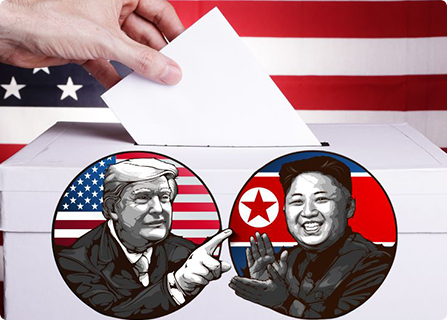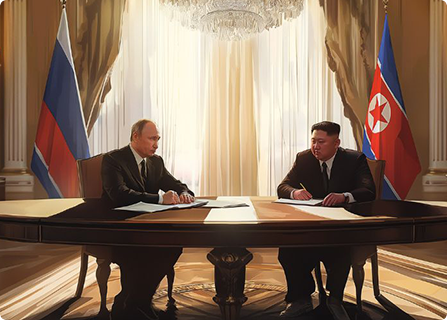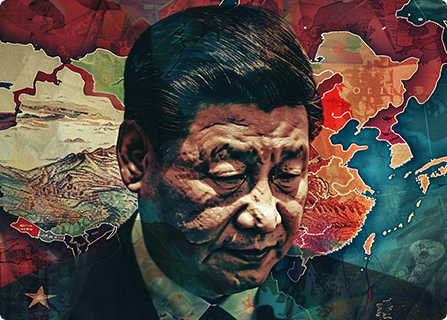Available Downloads
Download Korean-Language Commentary
Download Korean-Language Commentary
Theme
Inter-Korean Relations and Unification
Keywords
#Unification#TwoKoreas#Multipolarity#Russia#China
Editor’s Note
Byung-yeon Kim, a professor at Seoul National University, asserts that North Korea's decision to abandon the unification agenda is a defensive strategy based on pragmatic assessments of inter-Korean relations, geopolitical dynamics, and its domestic economic crisis. Kim highlights that Kim Jong Un sees limited benefits from South Korea, prefers China and Russia as more reliable partners, and aims to maintain regime stability amid economic hardships. Therefore, he believes South Korea should maintain and improve its existing goal of unification, as North Korea's decision does not indicate a fundamental change in its principles toward inter-Korean relations.
North Korea (DPRK)'s traditional formula for achieving unification has been a “federation of lower stage” aimed at establishing “One Joson” (Ministry of Unification 2000). In 1991, Kim Il Sung called for a “confederacy based on one nation, one state, two systems and two governments.” Continuing this theme, Kim Jong Un expressed in his 2016 New Year's address that "all fellow countrymen wish … [for] a radical phase opened up in reunifying the country" in accordance with the "three principles" of sovereignty, peace, and national unity. However, during the 9th Enlarged Plenum of 8th Workers’ Party of Korea Central Committee on December 30, 2023, Kim Jong Un announced his decision to cease discussions on unification, characterizing inter-Korean relations as “between two states hostile to each other.”
This reversal prompts the question: Why did Kim Jong Un declare North and South Korea as belligerent states and deviate from his earlier unification agenda? The reasons and implications behind this decision appear to stem from three principal factors: inter-Korean relations, external geopolitical dynamics, and internal pressures. Kim's decision seems to be pragmatic, reflecting a cost-benefit analysis of the current circumstances rather than a fundamental shift in principles.
In terms of inter-Korean relations, North Korea perceives a decline in the potential benefits that South Korea (ROK) could offer. Traditionally, these benefits included economic support and a mediating role in nuclear negotiations. However, during the Moon Jae-in administration, North Korea felt that ROK was unable to provide significant economic assistance or effectively facilitate nuclear dialogues, constrained by international sanctions. This perception has only hardened with the transition to the incumbent Yoon Suk Yeol administration, which has prioritized strengthening ROK-U.S. alliance and enhancing extended deterrence. North Korea interprets these shifts as signals that any expected benefits from South Korea are unlikely to materialize in the foreseeable future, especially amid broader geopolitical transformations.
Meanwhile, the emergence of Russia and China as viable alternatives to South Korea is the external factor in North Korea's shift in unification policy. With expectations of expanded DPRK-China trade and anticipated economic support from China, North Korea finds little reason to rely on South Korea, which has been unable to initiate economic cooperation due to international sanctions. In contrast, China has demonstrated both willingness and capacity to engage economically with North Korea.
This reversal prompts the question: Why did Kim Jong Un declare North and South Korea as belligerent states and deviate from his earlier unification agenda? The reasons and implications behind this decision appear to stem from three principal factors: inter-Korean relations, external geopolitical dynamics, and internal pressures. Kim's decision seems to be pragmatic, reflecting a cost-benefit analysis of the current circumstances rather than a fundamental shift in principles.
In terms of inter-Korean relations, North Korea perceives a decline in the potential benefits that South Korea (ROK) could offer. Traditionally, these benefits included economic support and a mediating role in nuclear negotiations. However, during the Moon Jae-in administration, North Korea felt that ROK was unable to provide significant economic assistance or effectively facilitate nuclear dialogues, constrained by international sanctions. This perception has only hardened with the transition to the incumbent Yoon Suk Yeol administration, which has prioritized strengthening ROK-U.S. alliance and enhancing extended deterrence. North Korea interprets these shifts as signals that any expected benefits from South Korea are unlikely to materialize in the foreseeable future, especially amid broader geopolitical transformations.
Meanwhile, the emergence of Russia and China as viable alternatives to South Korea is the external factor in North Korea's shift in unification policy. With expectations of expanded DPRK-China trade and anticipated economic support from China, North Korea finds little reason to rely on South Korea, which has been unable to initiate economic cooperation due to international sanctions. In contrast, China has demonstrated both willingness and capacity to engage economically with North Korea.
- Byung-Yeon Kim is a Distinguished Professor of Economics at Seoul National University.
- Typeset by : Jisoo Park, Research Associate
- For inquiries : 02 2277 1683 (ext. 208) | jspark@eai.or.kr



